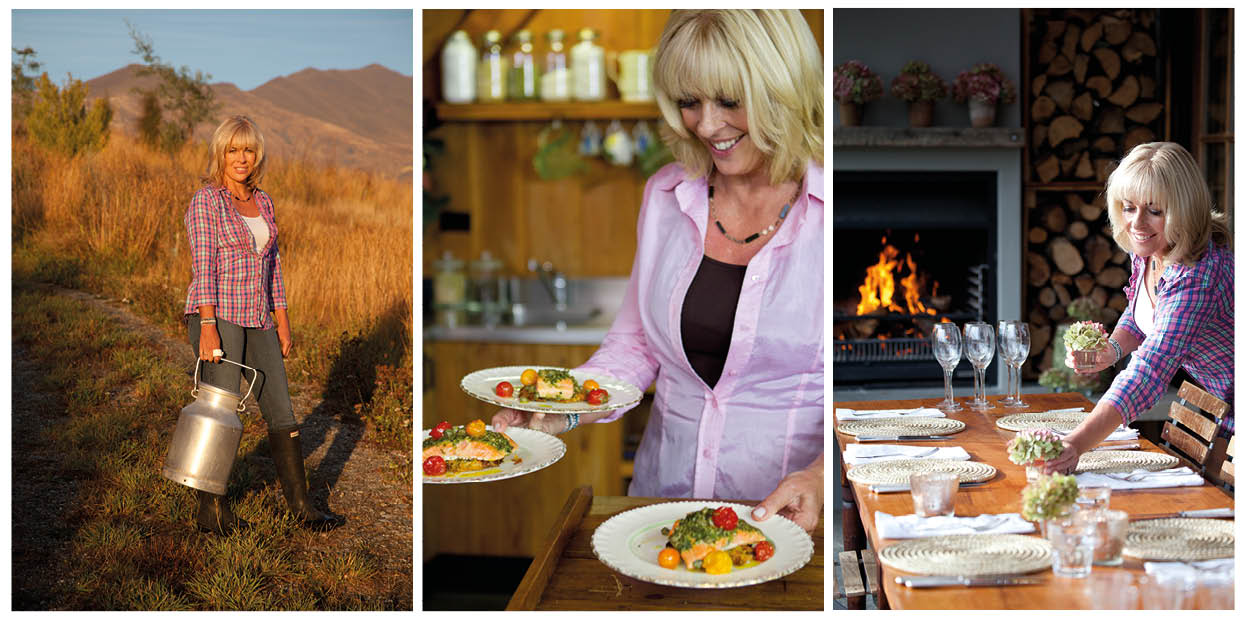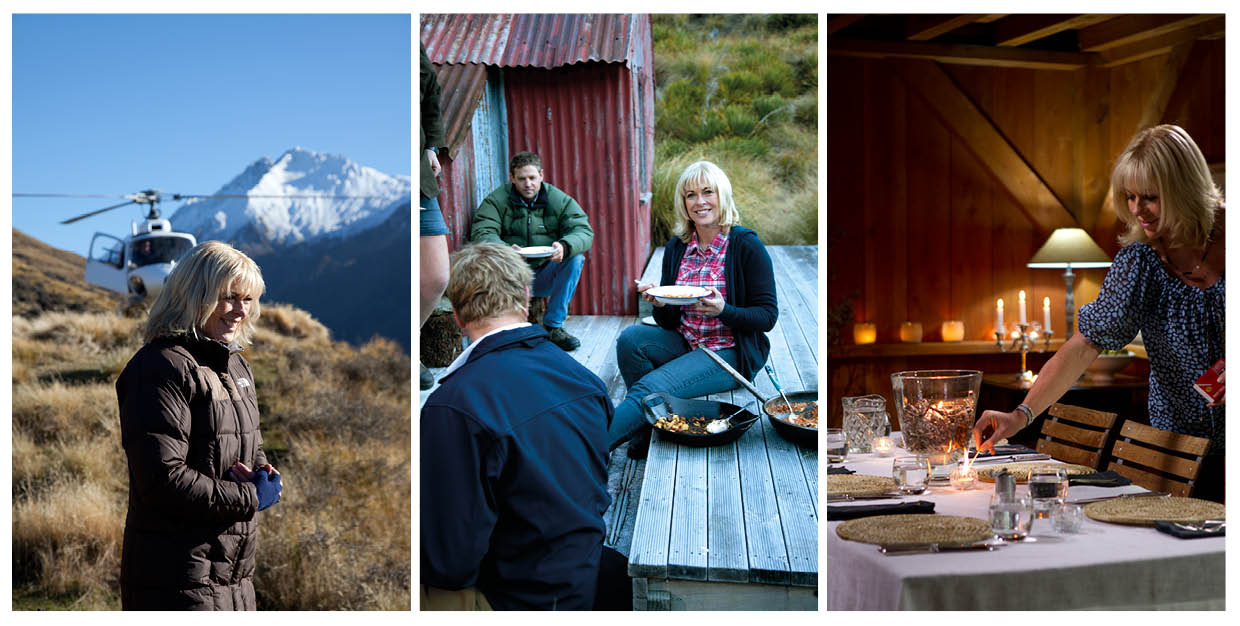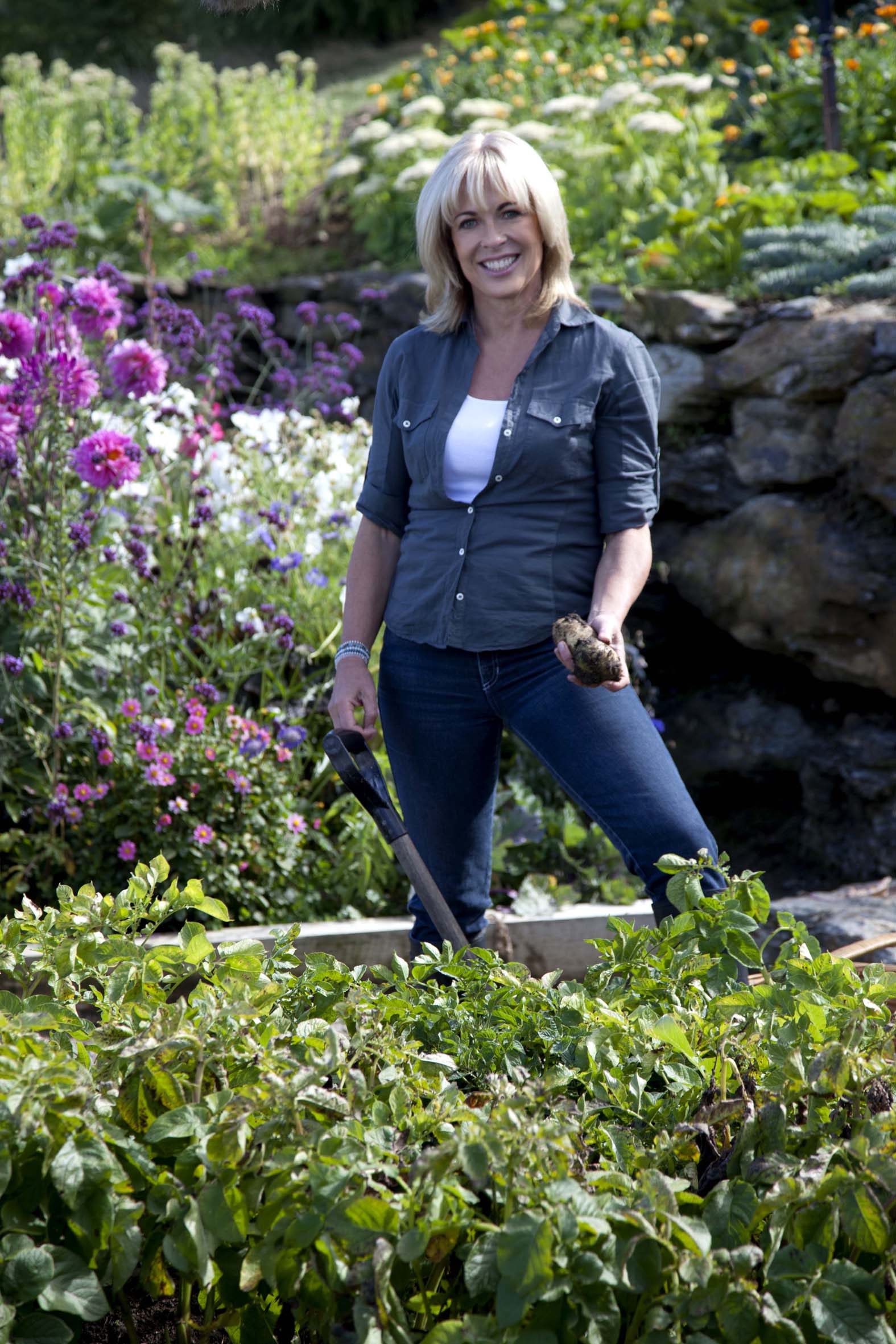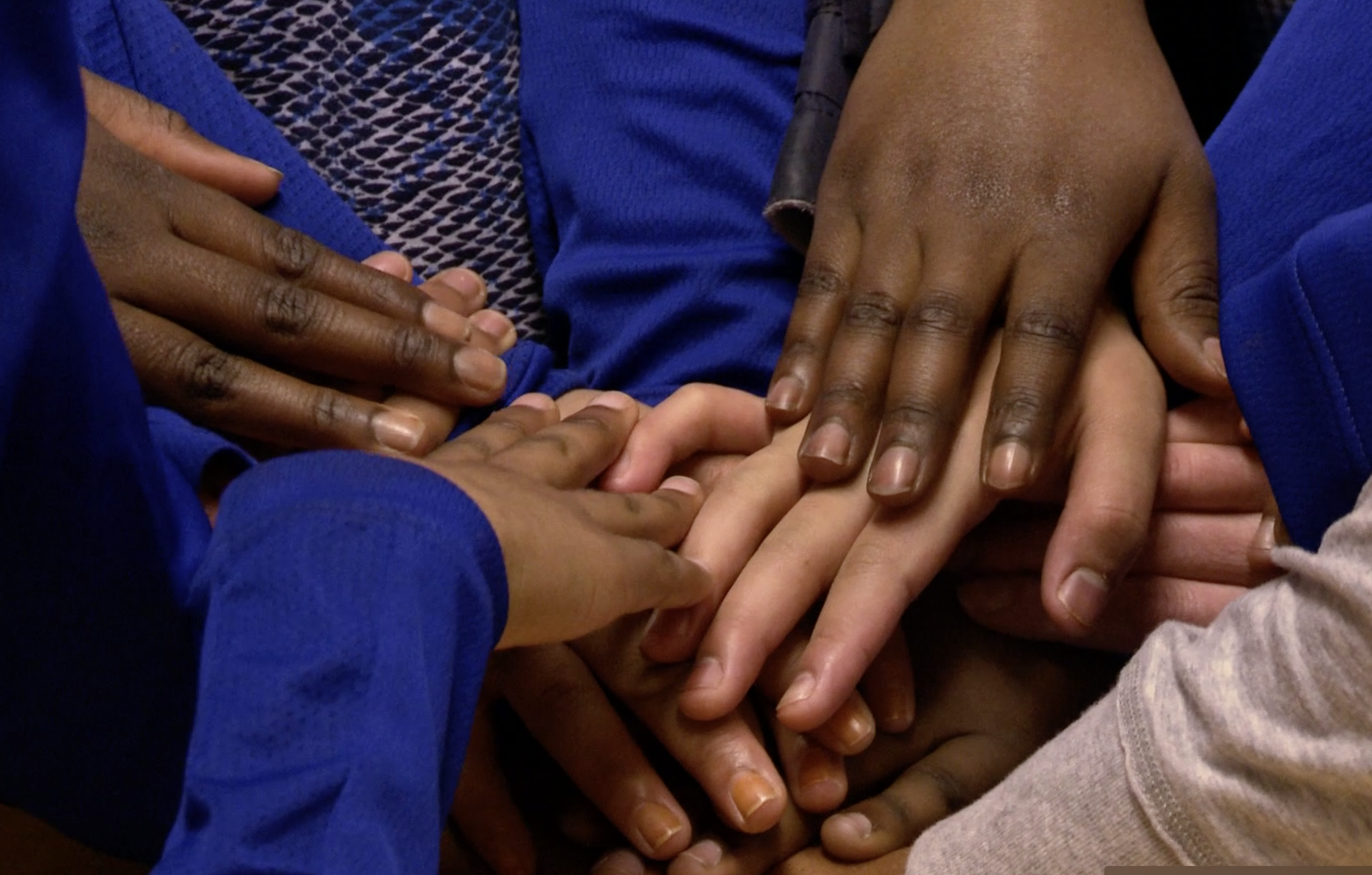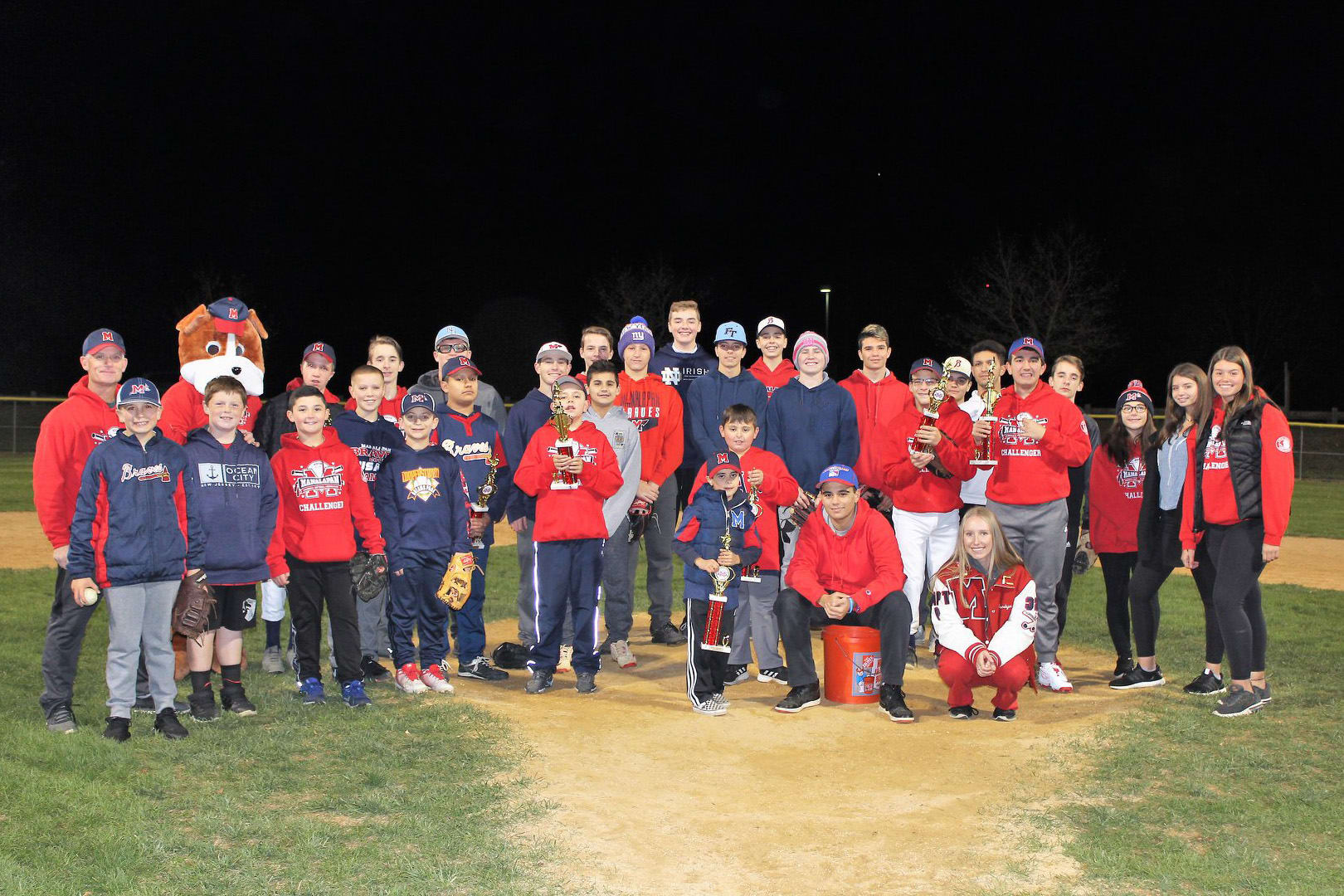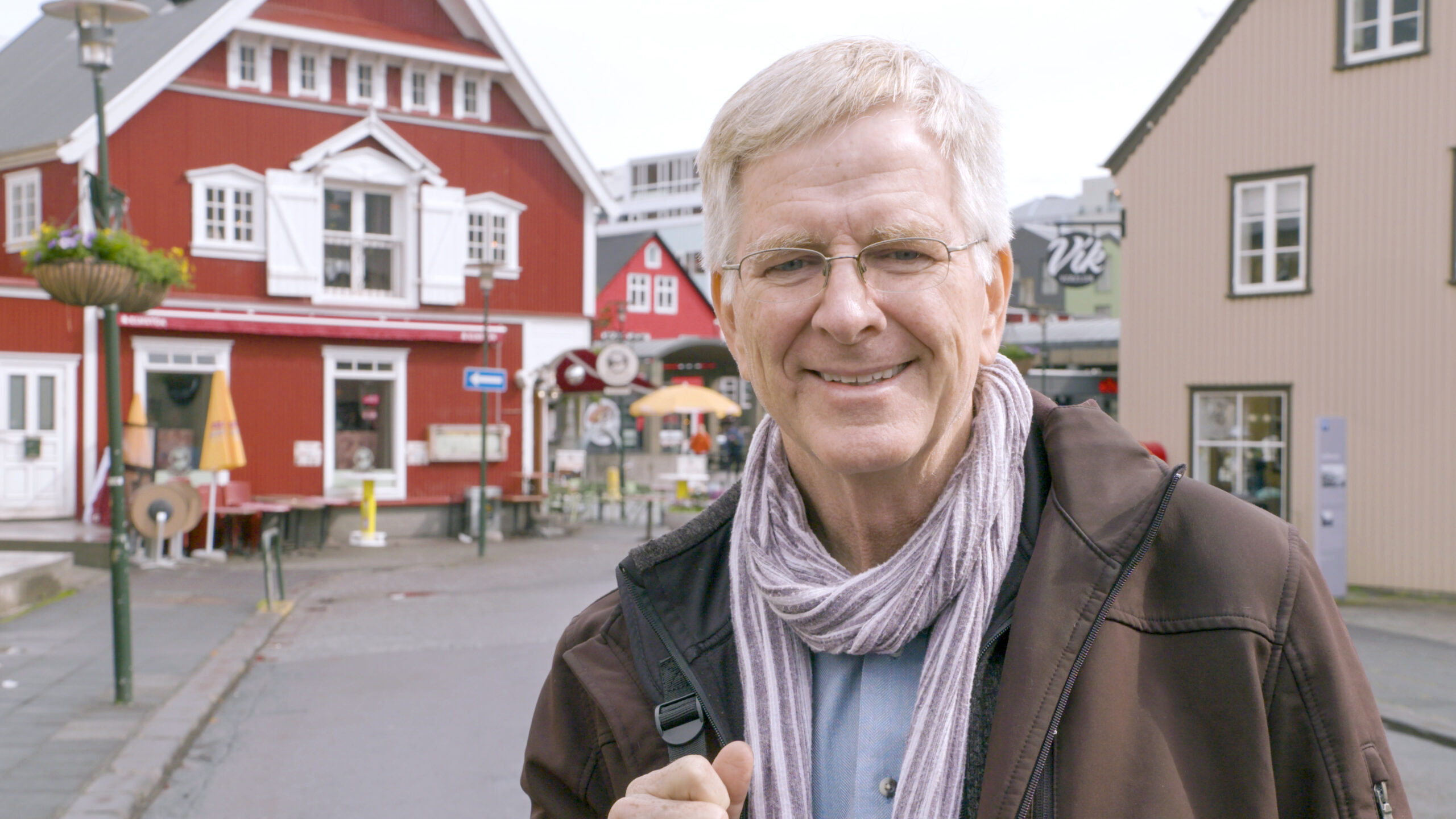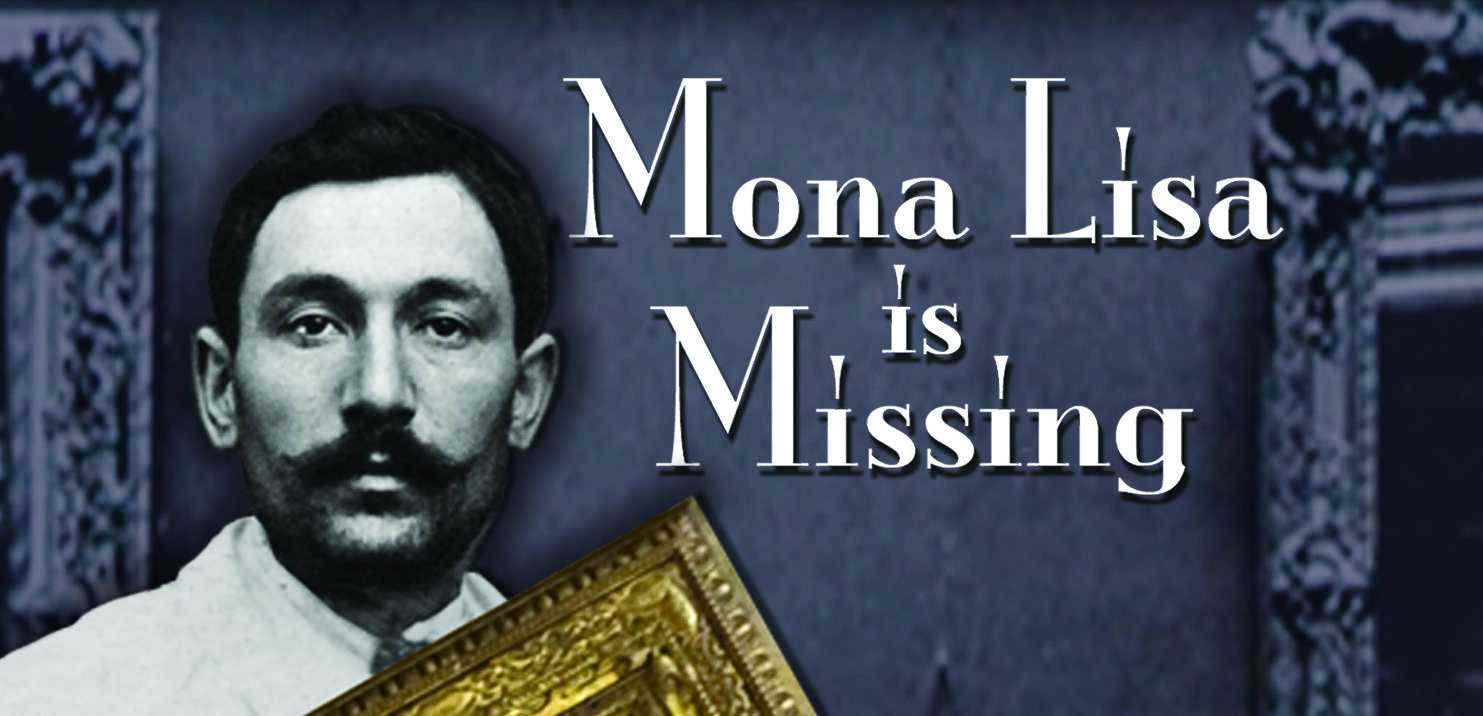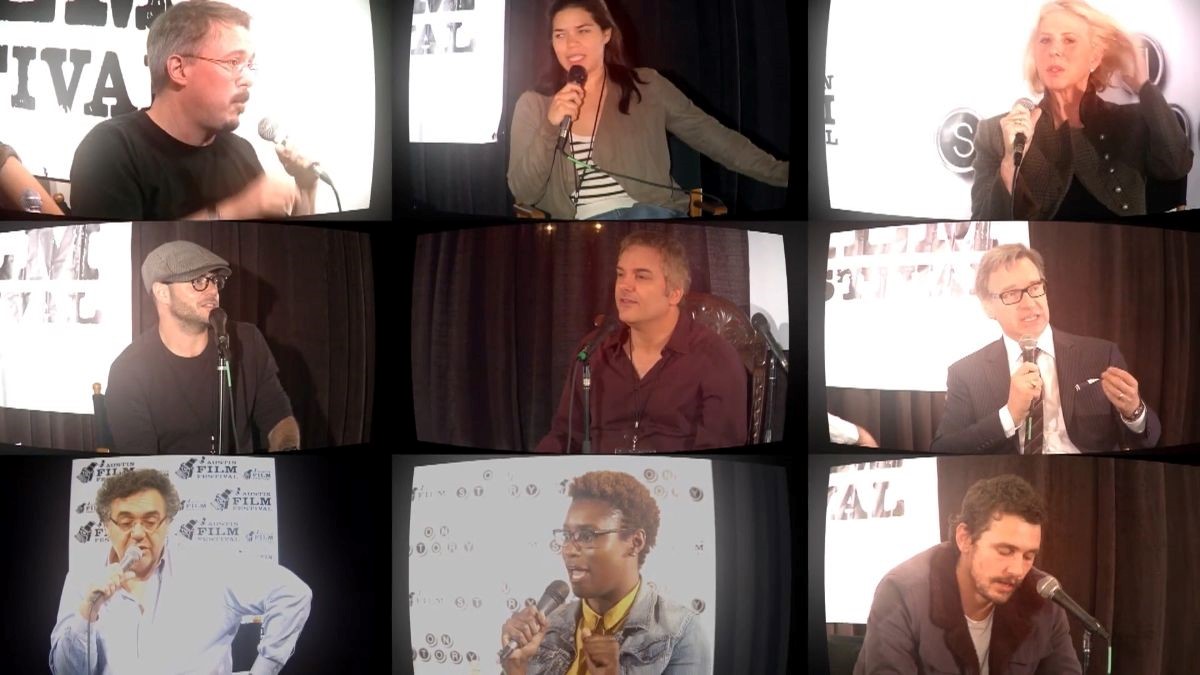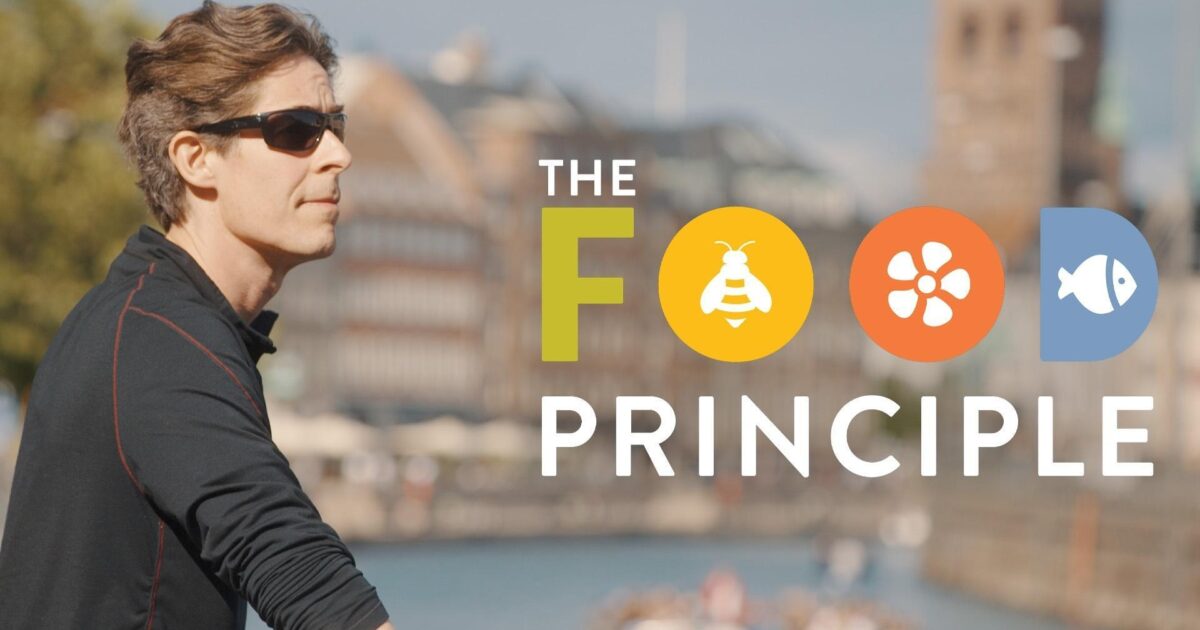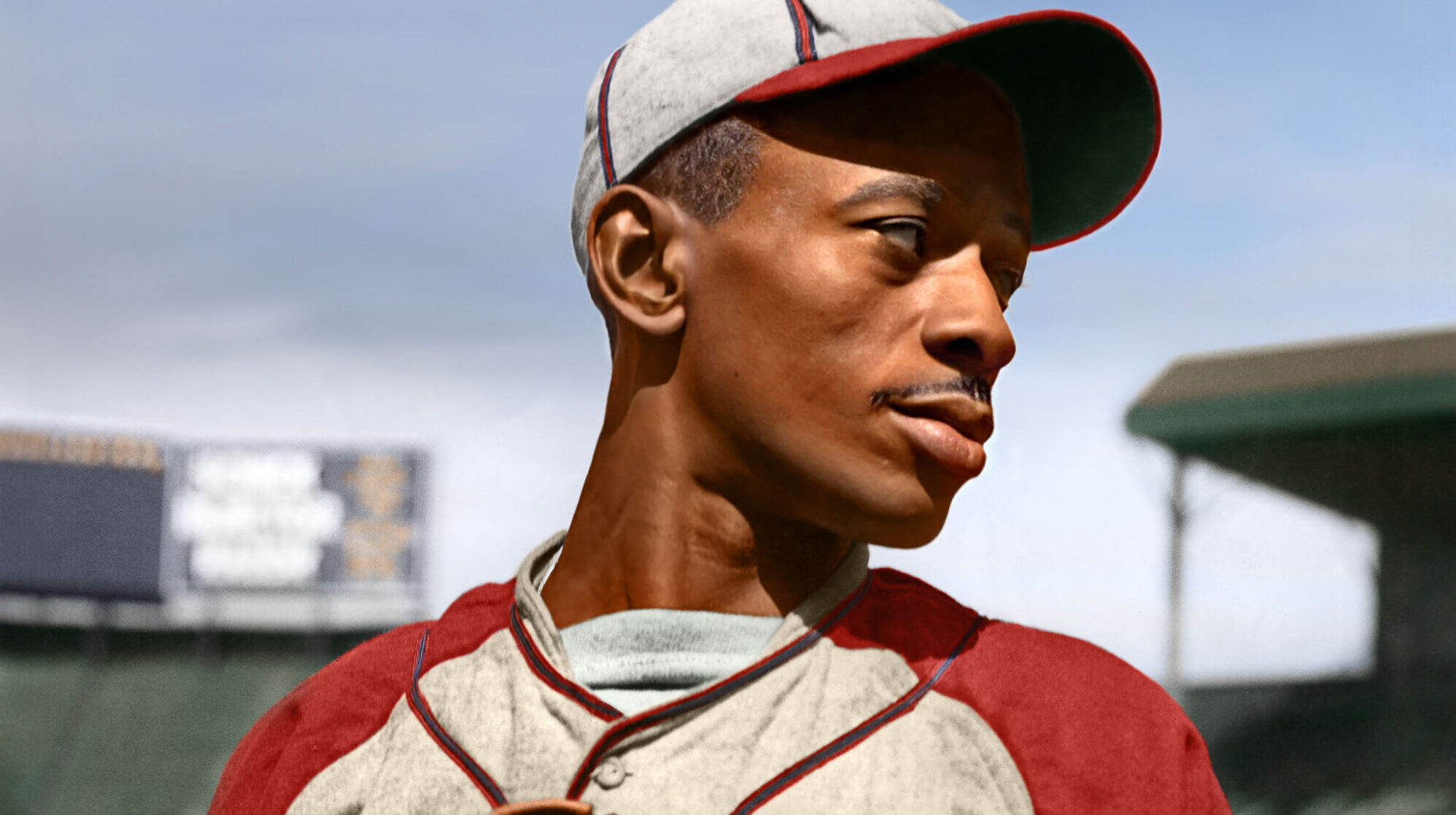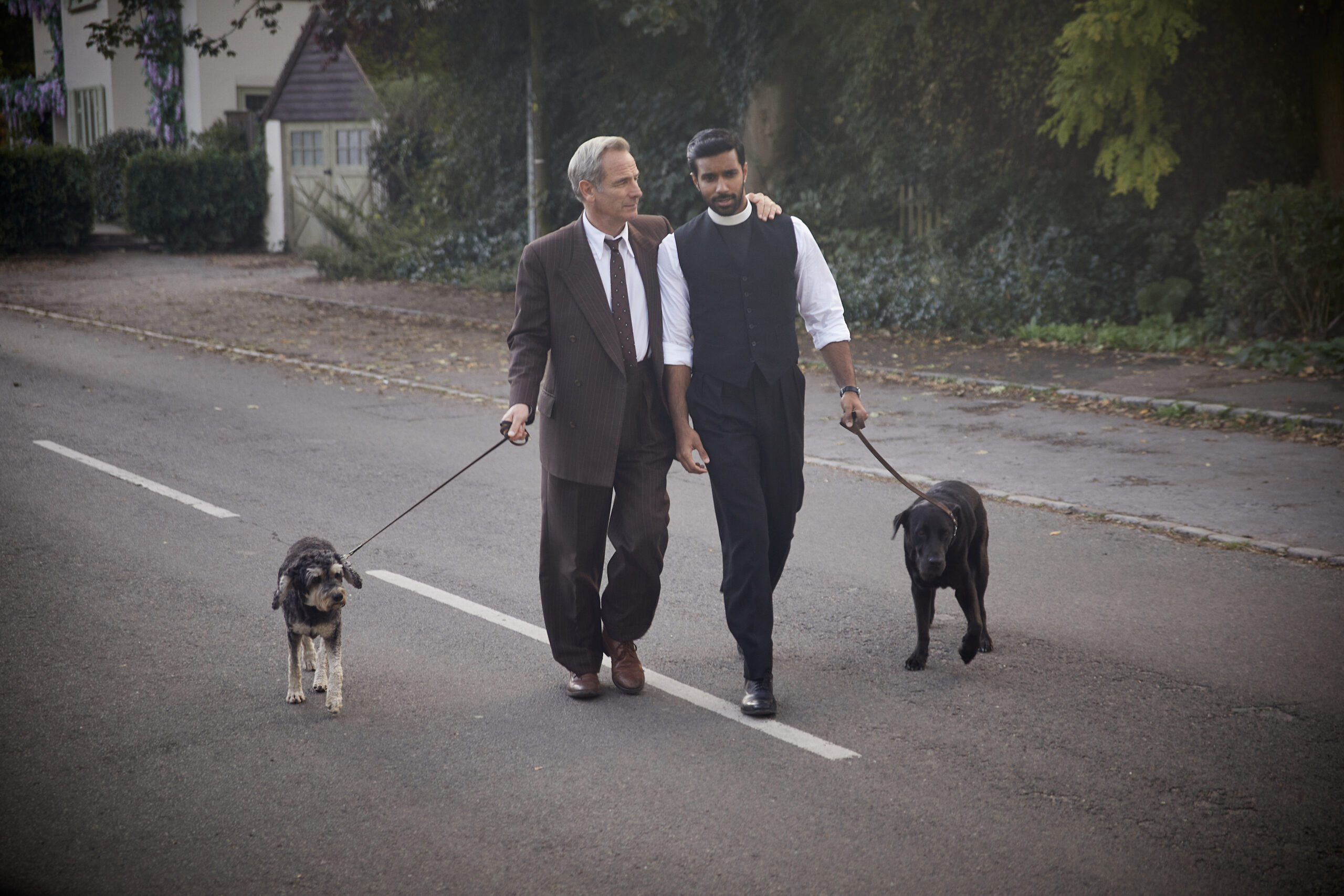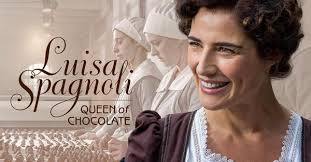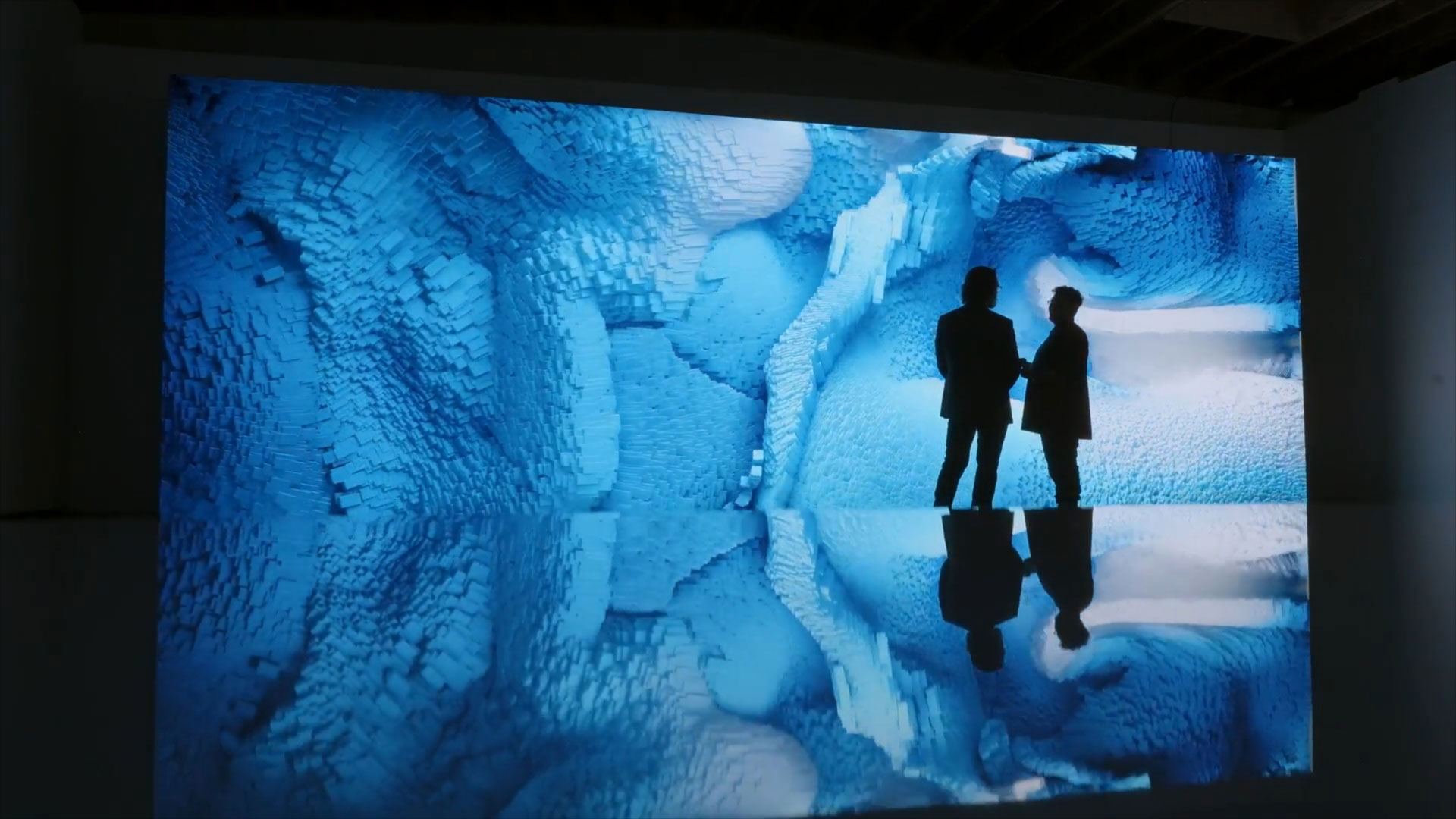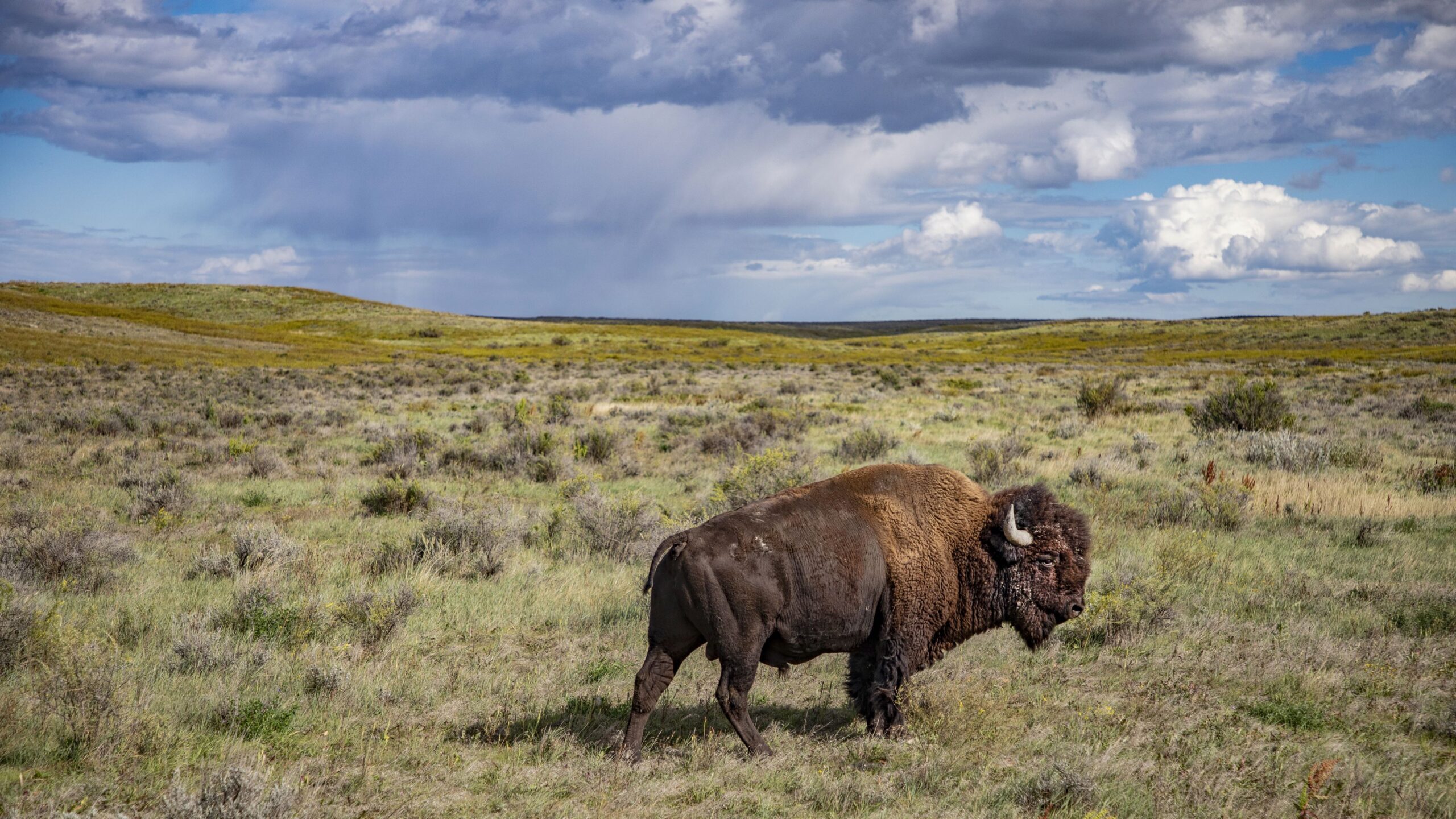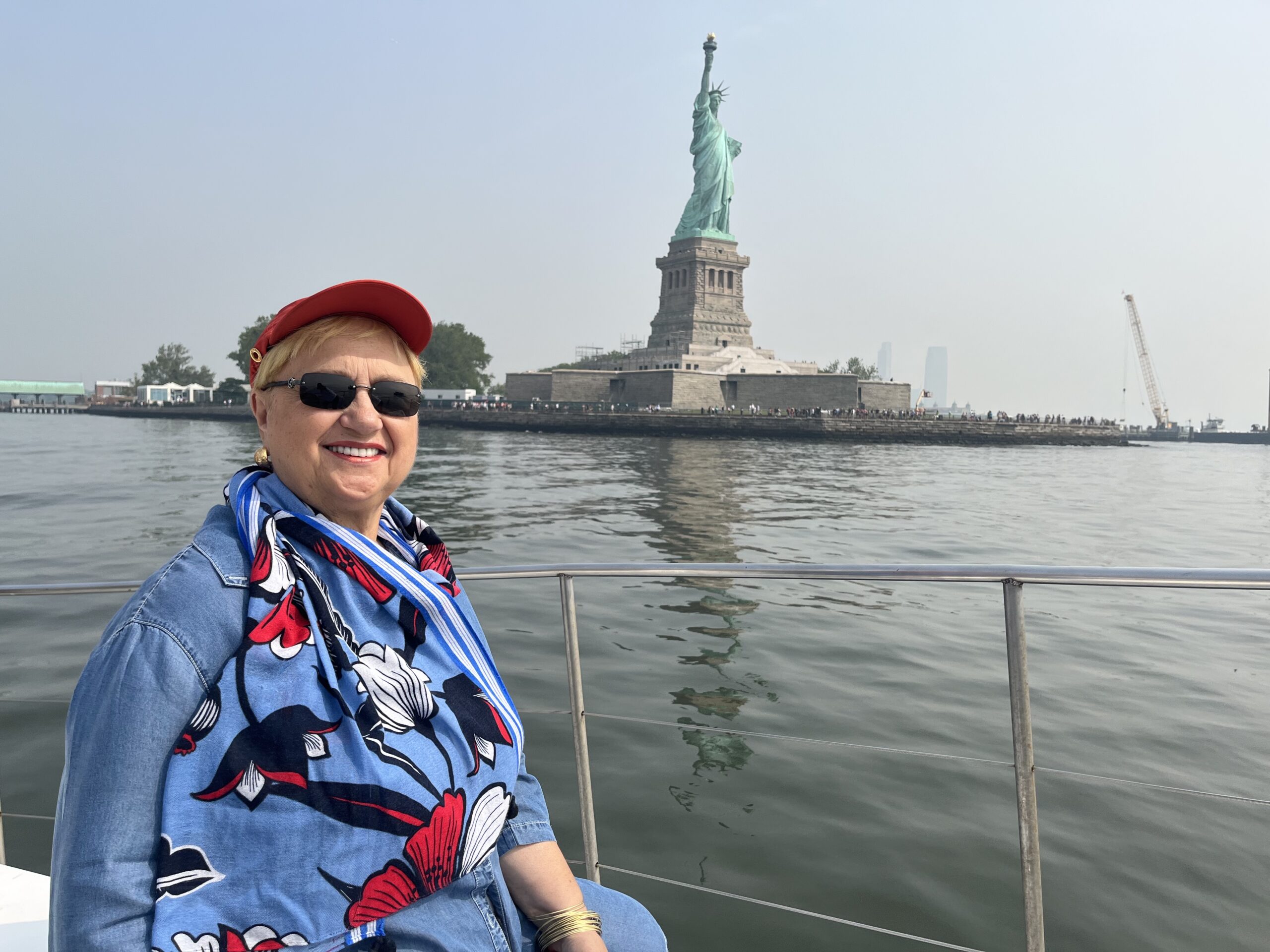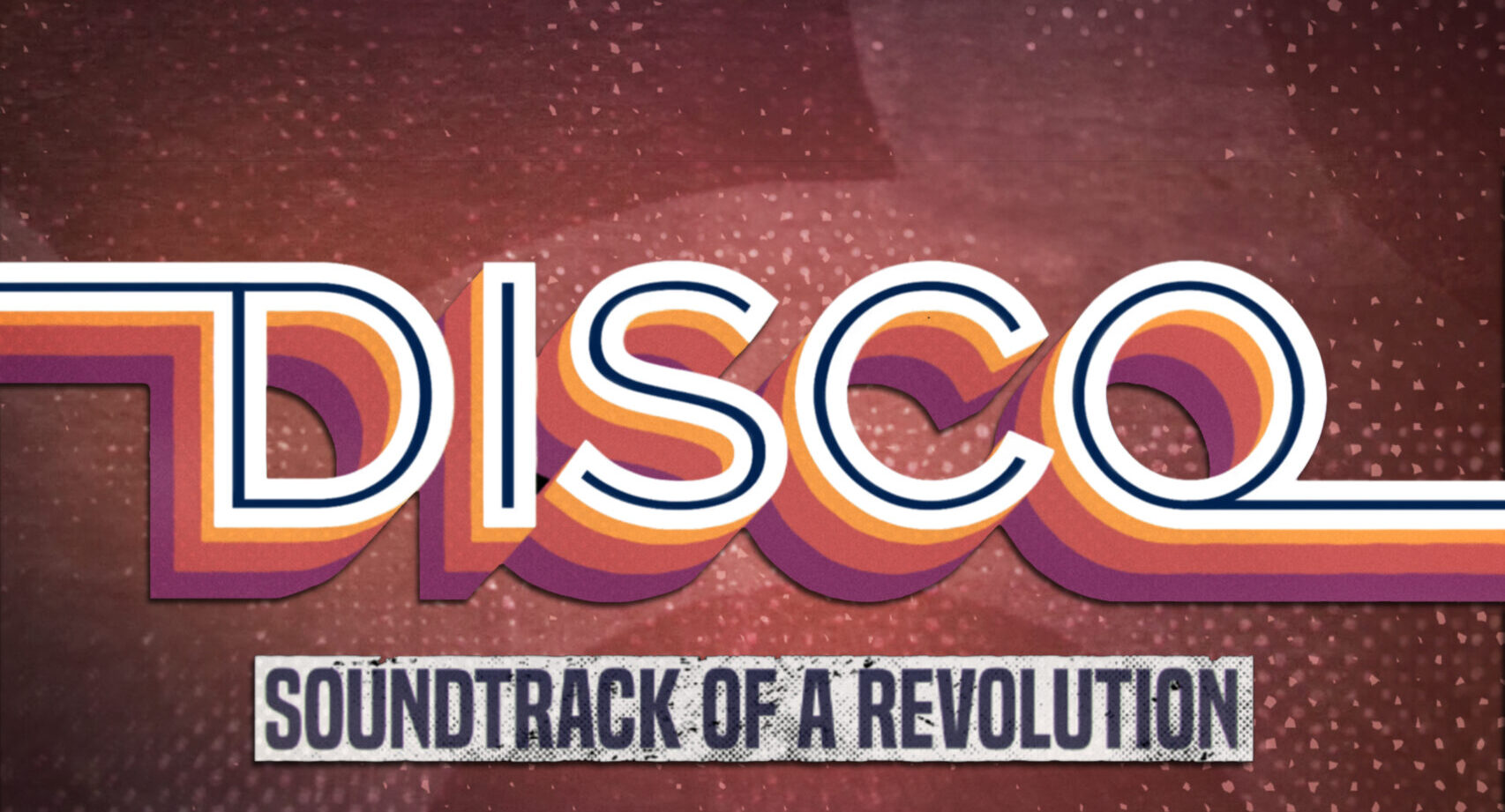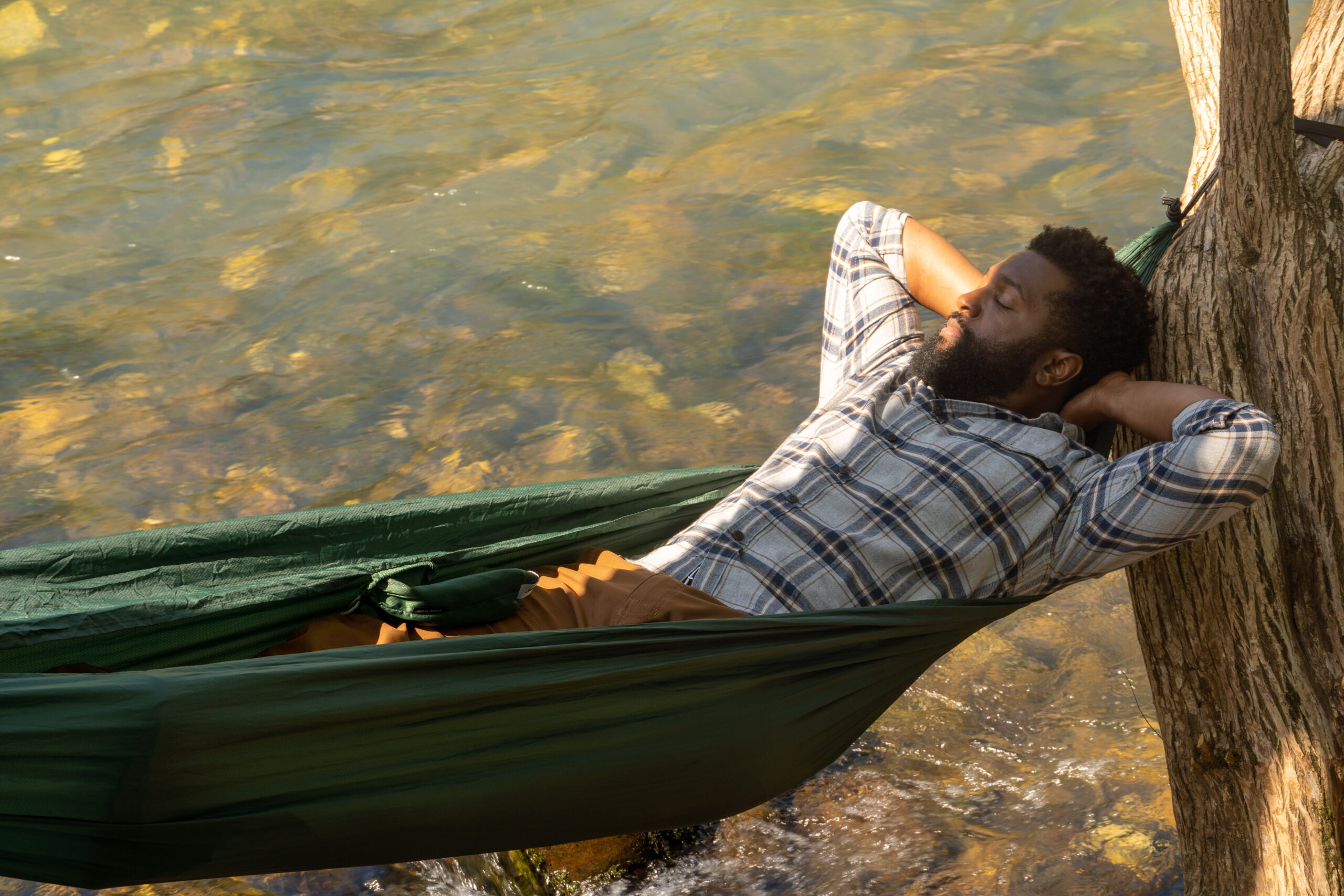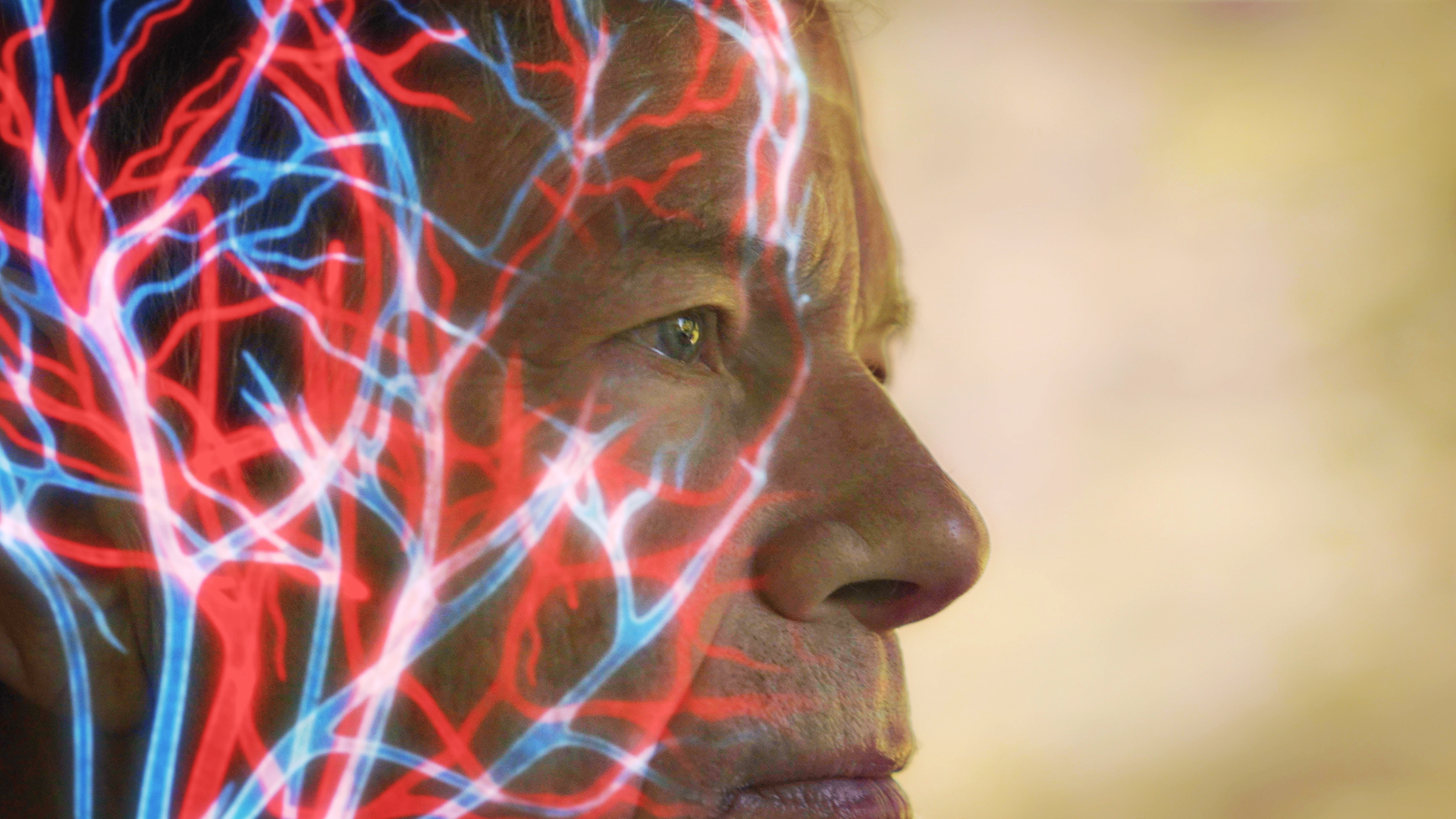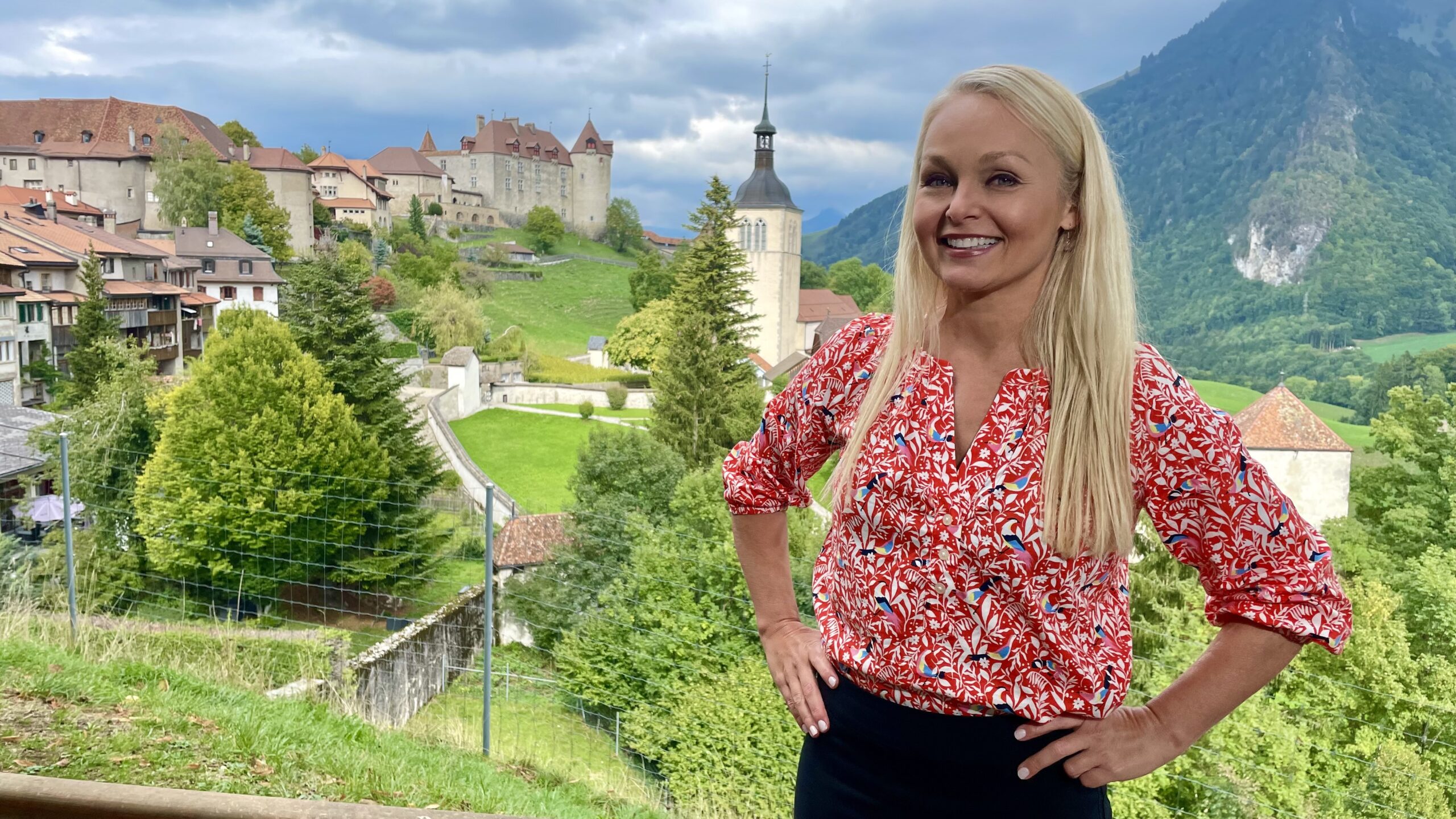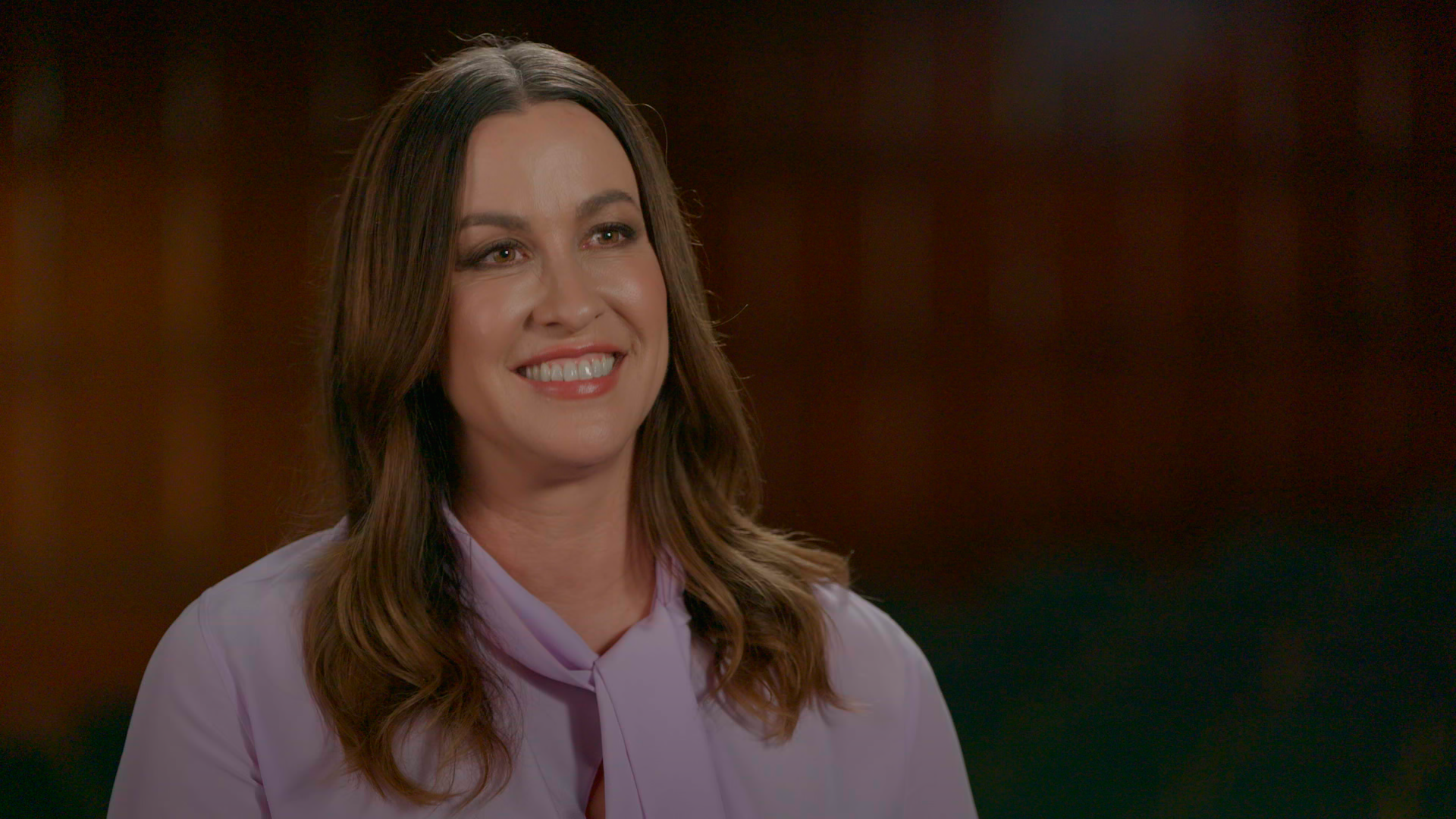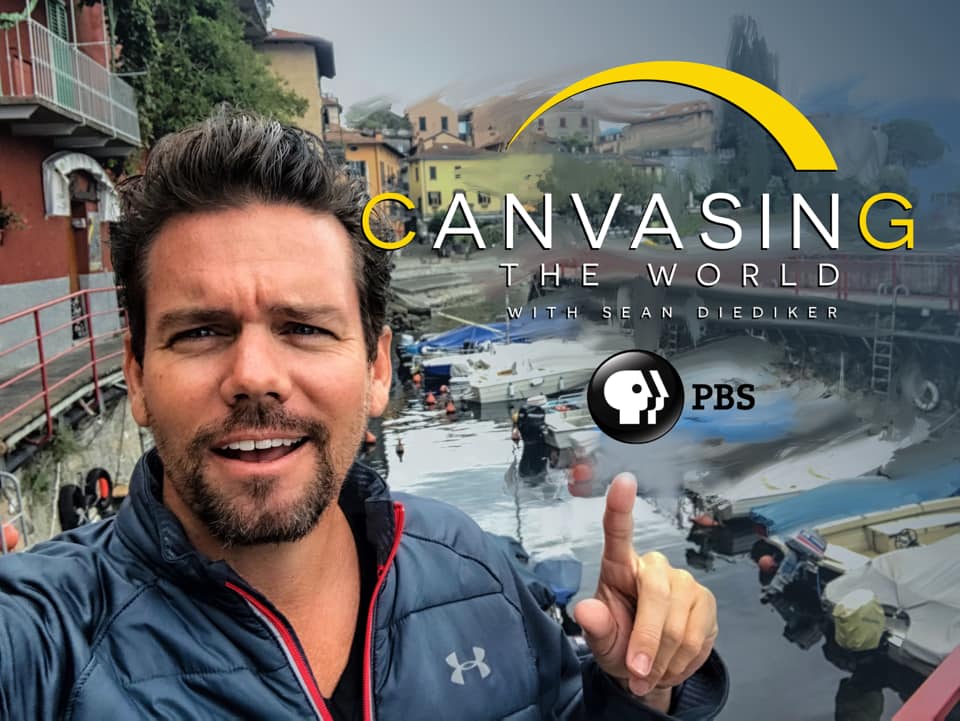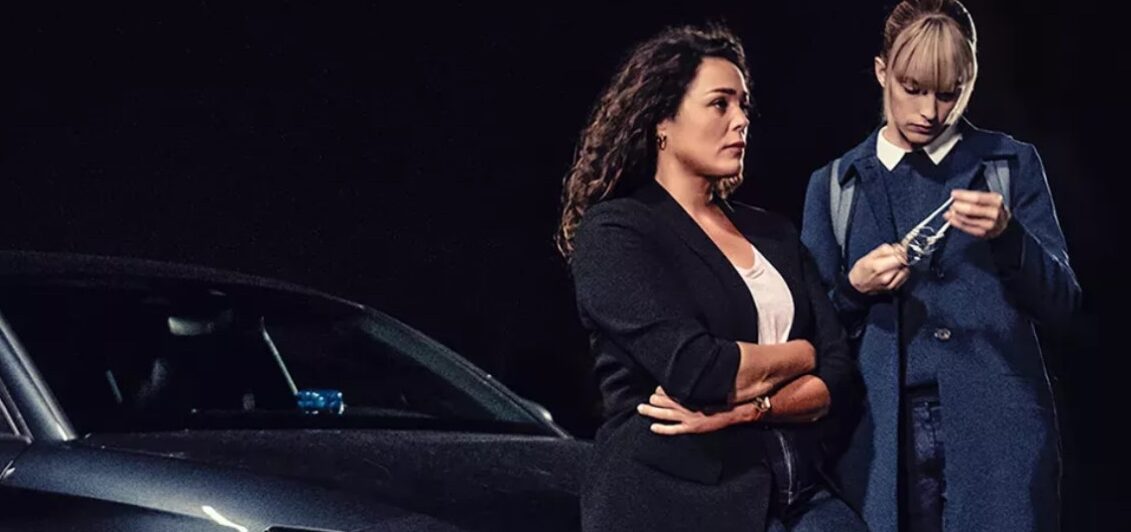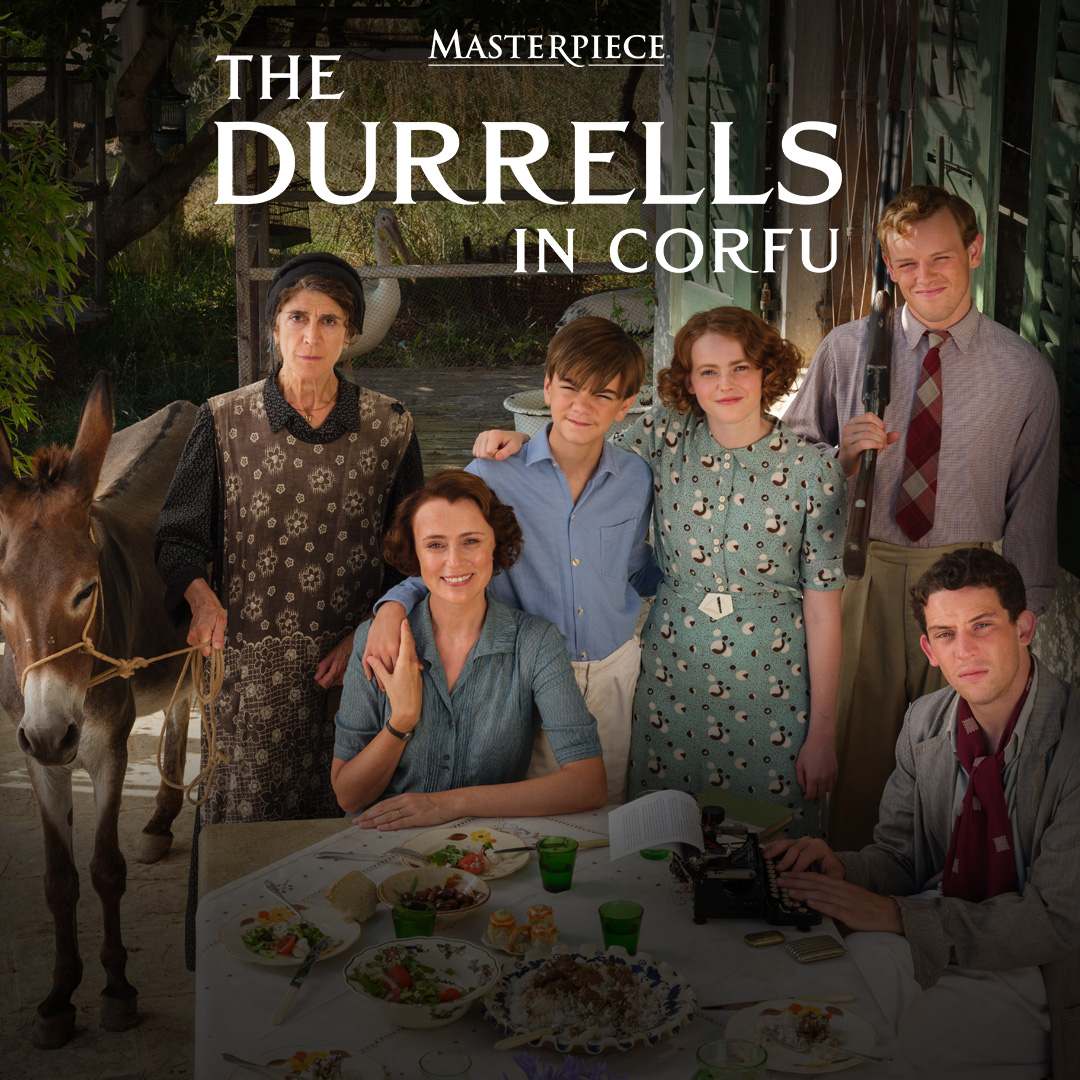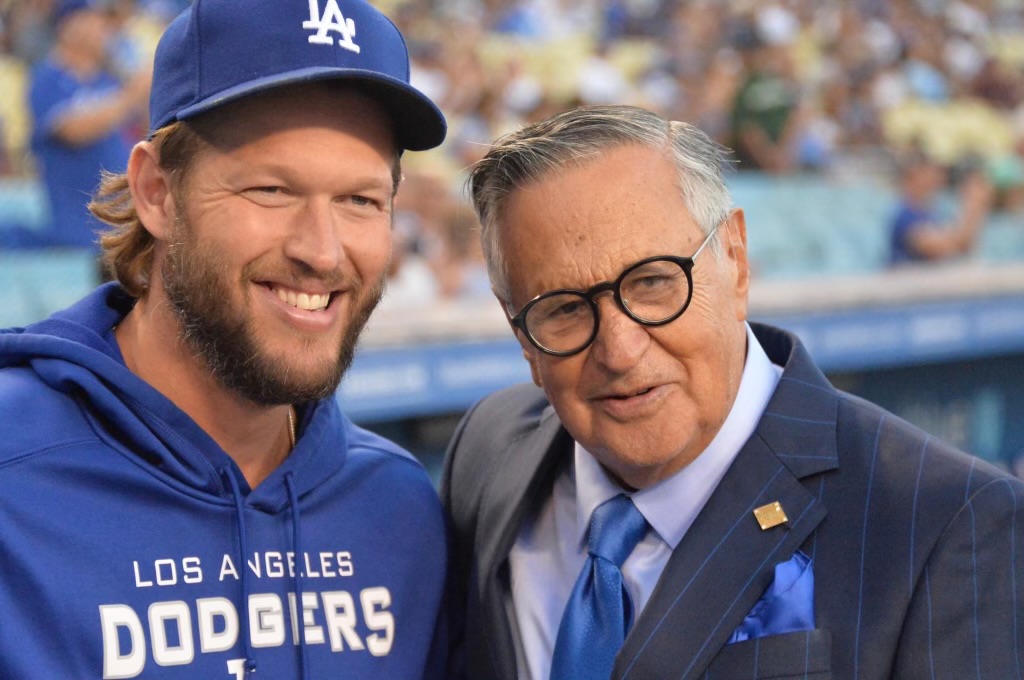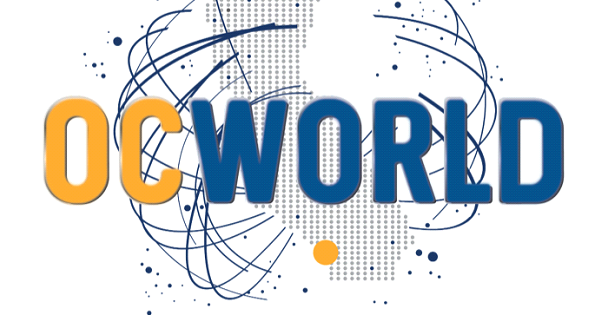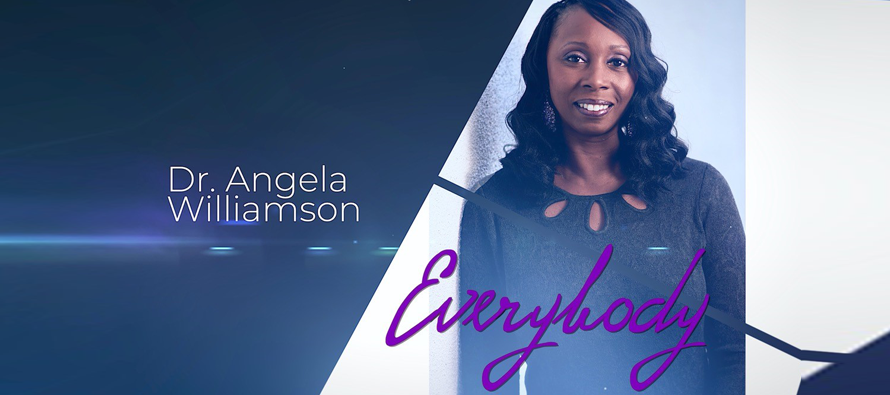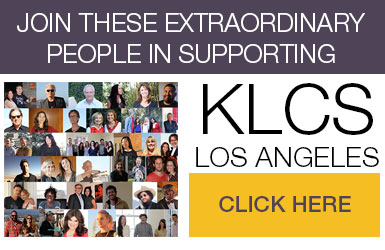“Annabel Langbein: The Free Range Cook” is the only show on KLCS’ CreateTV that takes viewers half way across the world to a peaceful garden to table life on a New Zealand lake, as Annabel makes homey dishes with ingredients like homegrown lavender using a teacup as her measuring cup. Langbein takes these treats, and us, to visit local farmers that include fellow Kiwi actor Sam Neill. It always leaves us always wishing for more episodes and glimpses into this nature-filled life. Annabel tells KLCS about how she got on U.S. TV screens, what Julia and Paul Child said when she wrote a letter as a fan, if there will be any new shows and what her daily routine is like now.
Annabel, being in New Zealand, how did your show come about and how did it come to air here in the U.S.? What made you want to share your show with U.S. viewers?
I’ve been approached about making television quite a lot when I was younger but I didn’t want to do anything until my kids were older because I knew it was going to be really intense and because I’ve always had my own publishing company, I thought, “Why don’t we do this on my own?” I had this publishing business that ended up being quite a big publishing business publishing my books, and I’ve published them in about nine languages, and my big German publisher who had commissioned 1.2 million books of my latest book, and it went bankrupt, and I had to reinvent what it was that I was doing. So I made a book and I think I was the first person in the world to publish a book with a QR code. And in the QR code, I made all these videos, because when you see something being done, you go, “Yeah, that’s really simple, I can do that.” So I made these little YouTube clips and I put them in the book and on YouTube. This was 2006. About six months later I got a call in my office and a very posh English voice from Fremantle Media, and I didn’t even know what Fremantle was, said, “We’ve just been looking at your YouTube clips, can you come to Cannes?” I said, “Yup, I’ll come to Cannes.” I thought they really liked these clips because for me, I didn’t have any money, it was a way for me to brand-build because they were basically little interstitials as filler content. We got to Cannes and had a terrible lunch at the Majestic Hotel with some sole meunière that if you hit with a cricket bat, it would’ve made a hole in the wall, it was so hard (laughs). I didn’t know what they wanted and I said, “Is this about my interstitial clips?” “Oh, no, we want you to be a star!” I said, “What does that mean?” (laughs) They said, “Let’s make a pilot”, and I was very lucky at the time because of my publishing business. I hired a woman in New York to work out a strategy for how I could be successful in America and where my brand might fit. I was sort of ahead of my time, because it was garden to table then. My brand is about connecting people and when you think about food, it connects into nature and the world around you, it connects you to your own community and then when you try new ingredients, it connects you to another culture and also connects you to your creativity. And it was really interesting in a sense that the lady couldn’t really see where my brand could fit in America then. We made the pilot and I went to Cannes to sell the show a year later. I took a whole suitcase of homemade cookies (laughs). And it was so funny because they weren’t used to having the talent in the meeting, I said, “I want to be there because I’ve always run my own ship.” We did a licensing agreement, so we owned the show and we licensed them to distribute it and we ended up being a number two property after Jamie Oliver, we got it to 93 territories. And then PBS picked us up which was really exciting because I wasn’t known in America and I wasn’t living in America. They said, “We think we might 60 percent market coverage” and they ended up getting over 90 percent. They said it had been the biggest seller since Jacques Pepin.
When I first saw your show, I loved that I was able to go to this peaceful place on the other side of the world. It made me think of you as New Zealand’s Martha Stewart. Do you get feedback that your show is a guilty pleasure in a noisy world?
Yeah! I think it is, but I also think there is a sense of simplicity to a rhythm of life that is actually achievable, and I’m not a trained chef and so my recipes are about home and a very simple way of cooking, but that is delicious. One of the interesting things I think is that, in New Zealand, our traditional food culture, it’s a wee bit like America but different in that we are a nation of immigrants and the Maori people who were here before us had a very much hunter-gatherer cooking life style. And then the English farmers came and it was lamb or mutton and potatoes. It was a boring culinary legacy, but then we started to get a really interesting food culture that evolved in the mid ‘80s from so many immigrants bringing their food to our kitchens and tables. And at the supermarket, even probably 30 years ago, I could buy tahini, wasabi, quinoa, so we had a kind of global pantry at our fingertips; that meant for the home cook, you cold take a very simple ingredient like a potato or fish and you could cook it so many ways. Thai sweet chili sauce is as ubiquitous as ketchup in your pantry. So having this global home pantry, it’s made home cooking so much more interesting because you can go, “Should we have an Asian fish bake tonight or should we do a Moroccan tagine thing.” It’s just an idea of being able to have a bigger flavor pantry at your fingertips. If I had been brought up in Italy or France, or anywhere with a strong food culture, it’s very hard to cook outside of that because that’s the way everyone cooks. I think that’s what they felt at Fremantle; I lived in this beautiful environment and I had a kind of cooking that was very approachable but also it had all these flavors of the world in it.
You live on a farm, what is your average day like now? And what are you doing when you aren’t making this show?
I spend a lot of time in my garden, I’ve just been up in my garden now, harvesting my potatoes so that I’d have enough room to plant my autumn and winter crops. And I studied horticulture and my university gave me an honorary doctorate, so I love growing my own food and I love nature. The rhythm of my day is I try and write in the morning. I’ve just written a new book, “Bella: My Life in Food” and it’s a foodie memoir. I’m hoping my daughter writes a cookbook. She’s just come back from New York and I thought I could help her with my knowledge to find her voice.
Create has been airing your old shows that include “Free Range Cook,” but they’re from 2015; the one thing I keep thinking is I wish you had new shows. Are you doing new TV shows?
There is one show after that that’s “Free Range Cook: Through The Seasons” and it was my favorite show because I knew what I was doing then, there was so much garden-to-table content and it was even more of a look into New Zealand life. We ride around the countryside and we visited different parts of the country.
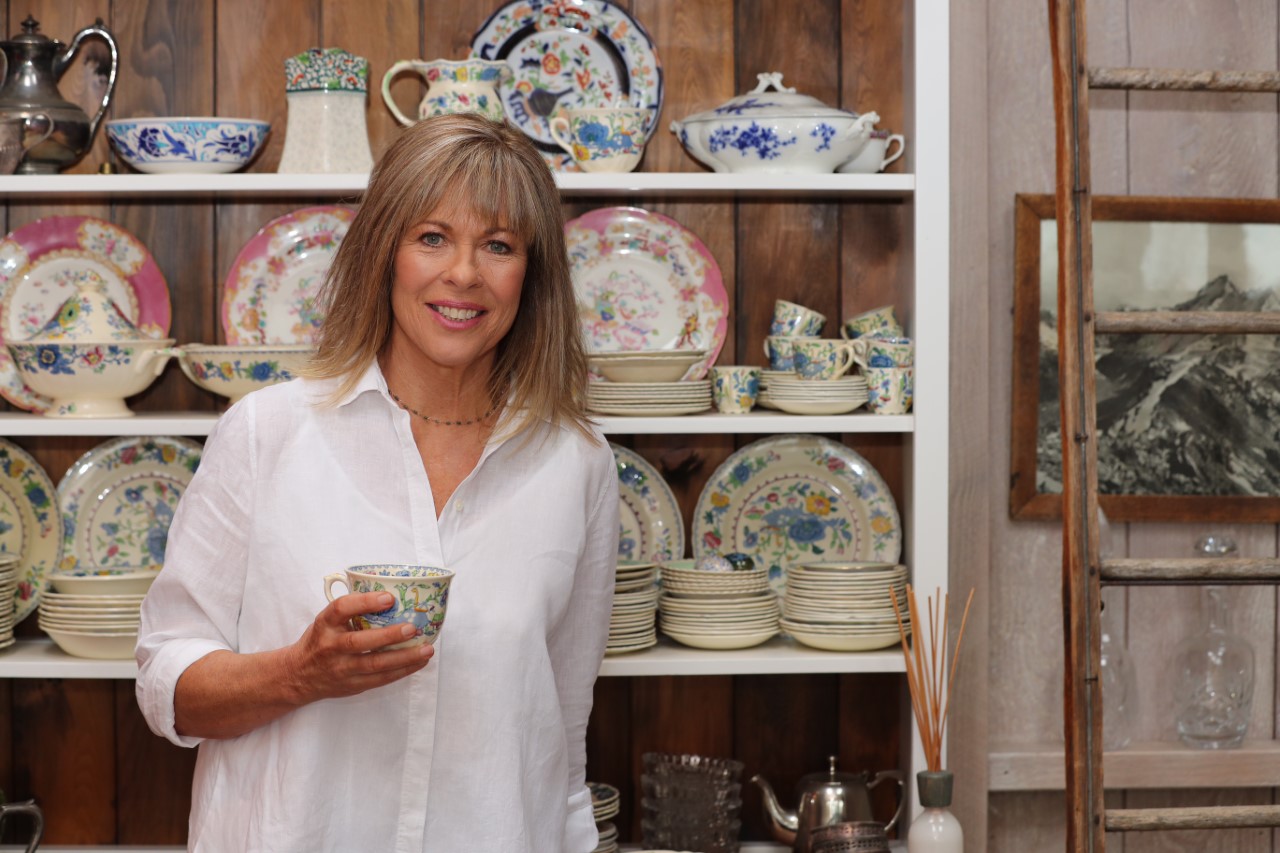
Are you mostly focusing on cookbooks when you mean writing?
I write a column for the newspaper and I do a lot of writing – memoir writing, travel writing and food writing. But the other thing we do a lot now is Instagram and through the lockdown here, everyday my daughter Rose and I would take turns at posting a new recipe through lock down and it was a really great way for me to connect with her in New York while I was here, for about two months. So now I really like Instagram as a platform and I’ll often make little cooking videos or gardening videos and my husband films them and he’s a very good cinematographer (laughs).
I love how your cooking is so rustic, down to the measuring cup being a teacup. What was your path to being a chef and what made you originally want to cook on TV?
I’m not a chef. I always loved cooking but I never really thought it could become a profession because I came from a family who were all quit academic and professional people and when I started out, cooking wasn’t at all fashionable, it was kind of a trade that you might do like being a plumber. So I never went to culinary school and then I had a series of fairy godmother moments where I’d come back from South America and I had so many adventures, and I was always cooking and my brother-in-law said, “Why don’t you write a column for our local magazine?” So I wrote a story about having Christmas in Colombia with a very dodgy boyfriend, eating boiled meat and dancing salsa, and I put some recipes in and two weeks later they contacted me to see if I could be a food editor for them. It was a huge break. And a new magazine started called “Cuisine” and I took on that. Then I started a catering company and I made croissants in Brazil, I had all these different things happening in my life that were – food. And I had a very bad accident when I was in my late 20s and came off a horse and spent four months in the hospital with a broken back and about eight broken ribs and a five percent chance of walking; so I had all this time to think and that was when I started to think about what I wanted to do with my life and I realized that cooking had given me so much pleasure and was such a simple thing to do to feel successful and useful, for anybody, and I thought, “Well, why don’t I make it my mission to try and help empower people in the kitchen?” And it kind of went from there.
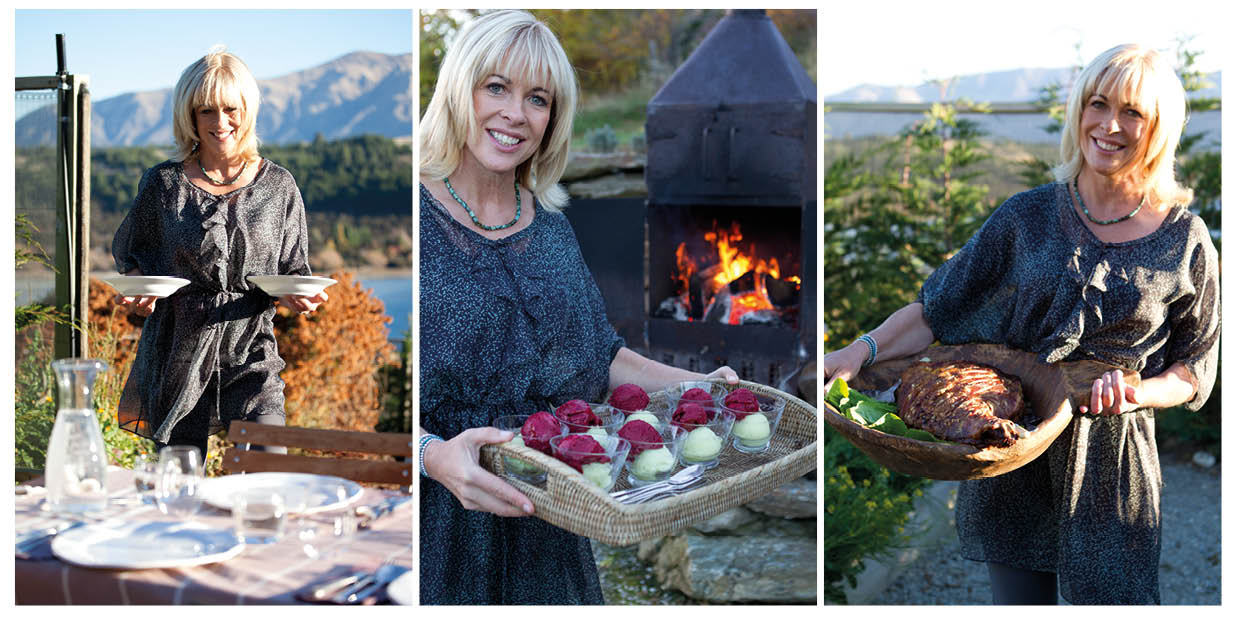
I love how in episodes you visit places like Sam Neill’s farm, who I assume you’re friends with, being a fellow farm owner. I love that in these visits, such as the visit with the merino lamb farmer, you always bring baked treats and tea. And you always incorporate nature, like using homegrown lavender, which many of us have but don’t know how to use in cooking. So was that something you thought about for your shows?
Yeah and when you travel, so much of travel is about food. And I wanted to make those curious armchair moments where you could feel the sense of escape without having to leave the living room.
Do you have a favorite, healthy, easy go-to dish you make in the winter like a soup perhaps?
Oh my gosh, do you know how many recipes I make? 10,000! (laughs) There is simple recipe that I make quite a lot in the winter and it’s a Moroccan lentil soup. I cook onions and garlic with lots of fresh ginger and then I add lentils, some diced pumpkin and a can of tomatoes and I put in Moroccan spice mix in with the onions in to cook out, and then I literally cook that until the lentils are tender. I’ll tell you, it is the most comforting, nourishing, delicious soup imaginable. When I published my books in Holland, my publisher used to put me up in this fabulous hotel, if you read “The Goldfinch,” that hotel is in there, it’s the most fantastic hotel and it’s on one of the canals in Amsterdam; just around the corner was this tiny hole in the wall café and I would always be in Amsterdam in late October when it was cold and this lady who had the shop always had this soup. And honestly, I’d almost be rushing back to Amsterdam just to eat that soup because it was so good. I tried to work it out; a few years later I was at a party in Amsterdam and I met the woman who owned the shop! And I said, “Oh my God, you have no idea I have just been loving that soup!” And she told me how to make it (laughs). And it’s so simple!
Do you get a lot of feedback from U.S. fans who watch you on PBS and CreateTV? And what is the most frequent question you get and your response?
They say, “When can I move to New Zealand?” (laughs) I don’t really get questions about – how do you make that? It’s more just, “I love your show!” It’s so nice and they’re from every place, whether it’s from Miami or Minnesota or San Francisco or San Diego. It’s been really rewarding.
Your show really does make us want to move to New Zealand or have a farm in New Zealand.
Yeah, I do think we are the new lucky country.
In more ways than one! You can tell you really enjoy what you do, what keeps you going and doing this everyday?
It’s not an artifice, this is my life, this is who I am, I don’t have to make anything up. I’ll show you, look at my view. (Moves computer to show the outdoors) This is my view.
Oh wow, Annabel! You live on a lake.
Yeah, that’s the view out of my kitchen window.
Almost everyone has had a Julia Child story, or that she influenced them, do you have a Julia Child story?
I have the best Julia Child story. When I came back from South America in 1983, I started a catering business and I was doing all this writing for this magazine but I didn’t know what I wanted to do because I was never going to be a chef. I had a go at cooking at a restaurant because a friend who was my neighbor built a restaurant for me when I was 19 (laughs), he wanted me to be the cook. My life – I was a real hippie for a long time, I lived in the bush for two years without any electricity; I used to jump out of helicopters and do live deer recovery, I was possum trapper. I had all these very adventurous experiences and when I was living in this bush life, I would come out with venison, squab, or lobster that I’d caught and mum had given me Julia Child’s “Mastering the Art of French Cooking” for my birthday when I was 14 because she knew I was a cook before I did. And I would make the Lobster Thermidor or I would turn her beef stew into something with venison, so she really taught me how to follow a recipe to success. My mother had lived in America because my dad had been a Fulbright scholar and so she brought back her love of Julia with her, so we grew up in a Julia Child house where she had all Julia’s cookbooks. So I’d come back from South America and I was catering and writing, but I didn’t know what I wanted to do, so I wrote to Julia (a laugh), and her husband Paul wrote this beautiful letter back and he said, “Julia and I have been talking about you and she thinks that you should come to this conference in Seattle”, and now it’s called the International Association of Culinary Professionals, so I booked a one way ticket to America to this conference and it just changed my life. At the conference I met this incredible French woman who spoke very little English and she said, “When you come to New York, you must come and stay in my apartment, I’m going back to France” and I turned up, having got off the Greyhound bus at 10:30 [p.m.] and went outside with my backpack and said, “I want to go to Brooklyn” and the taxi driver took off and the next taxi came and he took off and then in the end I put $20 bucks in the window and said, “I want to go to Brooklyn.” When we arrived at this dive, with dead bodies on the pavement and a million prostitutes, I thought, “Am I really in the right place?” (laughs) and I was. And Danielle Delpeuch was an impoverished recent divorcee and I was this poor student and we lived in this apartment and she really taught me what it was to be a cook. She was (Francois) Mitterrand’s private cook. I didn’t know any of this when I first met her. They made a movie about her, it’s called “Haute Cuisine.”
Do ever just pinch yourself you get to do this for a living and follow in Julia’s footsteps of educating people about cooking on TV and food?
Yeah, I do, I do, and I never take it for granted. Life can throw you all kinds of hard balls and it isn’t a straight line and when it’s beautiful and it’s all going well you make the most of every single moment.
Is there anything you want to add? Any new projects that you’re doing people can look forward to?
My book, I’m very proud of this book “Bella: My Life and Food” and it’s been number one on the bestseller lists here, which has been exciting. I’m also pretty excited about my daughter’s vision and helping her to realize that, because she’s a Millennial and she and I came to the same place of thinking about how fragile our beautiful planet is and how if we can help people find ways to tread more lightly in a way that you’re not feeling like you’re missing out on anything. And that series you guys have got called “Simple Pleasures,” I think that is part of my philosophy of just bringing people together around the table; you’re always going to have the best time. And people do it less and less because a lot of these cooking shows that are out there, they’re so competitive that makes people feel, “Oh, I can’t do that” but in fact it can be so simple. It’s just really about bringing people together.
Tune-in to KLCS’ CreateTV to watch “Annabel Langbein: The Free Range Cook”, learn more about Annabell on her website: (annabel-langbein.com) or
stay connected with Annabell by following her social media on Twitter (twitter.com/annabellangbein), Instagram (instagram.com/annabellangbein), Pinterest (pinterest.com/annabellangbein) or Facebook (facebook.com/AnnabelLangbein).

